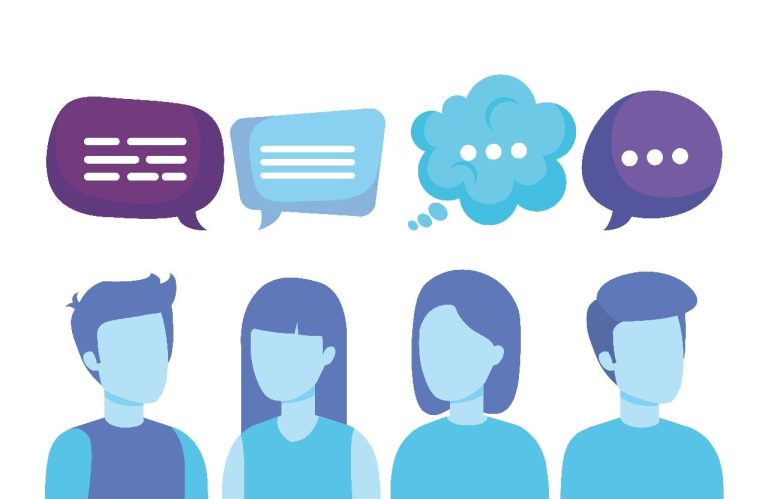Communication Mistakes You Probably Make: Fix Your Relationship
Strong communication is key to a healthy relationship. Yet, many couples face challenges here.
Misunderstandings can lead to tension and hurt feelings. These issues often arise from common communication mistakes. It’s easy to fall into these traps without realizing it. Small errors in how we express ourselves can snowball into bigger problems. Miscommunication creates gaps that can grow if left unchecked.
Recognizing and addressing these mistakes is vital for nurturing a strong bond. By understanding typical pitfalls, couples can foster clearer, more open dialogue. This blog explores the communication errors many make. It offers insights to help improve your relationship. Through better communication, you can strengthen your connection and enhance your mutual understanding. Let’s dive into these common mistakes and learn how to avoid them.

Credit: www.amazon.com
Common Misunderstandings
In relationships, misunderstandings happen more often than we think. These misunderstandings can cause small arguments or bigger problems. They often start because of poor communication. Misunderstandings can make people feel upset or confused. It’s important to recognize them early.
Assumptions And Misinterpretations
Assumptions are common in relationships. People assume their partner knows what they mean. This leads to confusion. For example, a partner might assume their actions show love. The other partner may not see it that way. Misinterpretations also occur. Partners may misread each other’s words or actions. This can lead to hurt feelings.
To avoid these issues, communicate clearly. Ask questions if unsure. Clarify your thoughts before speaking. This helps prevent misunderstandings. It also strengthens the relationship.
Impact Of Misunderstandings
Misunderstandings can have a big impact on relationships. They often lead to arguments. Trust can be broken. Partners may feel unloved or unappreciated. This creates distance between them. Over time, misunderstandings can harm the relationship.
Clear communication helps reduce these issues. Understanding each other’s viewpoints is crucial. It brings partners closer together. The relationship becomes stronger and more loving.

Credit: ptrpress.com
Listening Challenges
Listening challenges often arise in relationships and can create misunderstandings. Many people think they are good listeners, yet miss the essence of conversations. Effective listening is not just hearing words. It’s about understanding the speaker’s emotions and intentions. This requires patience, empathy, and practice. Without these, communication can falter, leading to frustration and conflict. Let’s explore some techniques to enhance listening skills.
Active Listening Techniques
Active listening involves fully focusing on the speaker. It means giving undivided attention. Avoid distractions like phones or TV. Maintain eye contact to show you are engaged. Nod occasionally to indicate understanding. Repeat back what you heard to confirm. For example, say, “I hear you saying…” This shows you value their words.
Ask open-ended questions to encourage sharing. “How did that make you feel?” invites deeper responses. This technique helps in understanding the speaker’s perspective. Active listening builds trust and strengthens bonds in relationships.
Avoiding Interruptions
Interrupting disrupts the flow of conversation. It can make the speaker feel undervalued. Practice patience by allowing them to finish. Hold your thoughts and comments until they pause. Use a mental note to remember your points.
Interruptions can stem from excitement or disagreement. Recognize this tendency and consciously pause. Take a deep breath before speaking. This habit fosters respect and understanding. It shows your partner their thoughts matter. Respectful listening is key to healthy communication.
Nonverbal Signals
Nonverbal signals play a crucial role in relationship communication. They often speak louder than words. Understanding these signals can help maintain harmony. Misreading them can lead to misunderstandings. Let’s explore common nonverbal mistakes in relationships.
Body Language Missteps
Body language can convey your true feelings. Crossing arms might signal defensiveness. Avoiding eye contact can show disinterest. Open gestures and direct eye contact foster trust. Pay attention to your partner’s body language too. It can reveal what words might not.
Tone And Facial Expressions
Your tone can change the meaning of words. A gentle tone is comforting. A harsh tone can hurt feelings. Facial expressions also matter. A frown might suggest anger. A smile can ease tension. Align your tone and expressions with your words. This ensures clarity in communication.
Emotional Responses
Misunderstanding emotions can lead to communication errors in relationships. Recognizing feelings is vital for expressing needs clearly. Avoiding assumptions helps prevent confusion and promotes understanding.
Emotional responses in relationships can lead to misunderstandings. Often, feelings guide our reactions, making conversations tense. Recognizing emotional responses can improve communication. It’s vital to differentiate between reacting and responding. Managing emotional triggers can also help. Let’s explore these aspects more.Reacting Vs Responding
Reacting is instant. No filter. Feelings drive reactions, often leading to arguments. Responding is thoughtful. It involves listening and considering the situation. A response offers clarity. It reduces tension and misunderstanding. Strive to respond, not react. This shift can improve conversations.Managing Emotional Triggers
Emotional triggers can disrupt communication. Identify what triggers you. Awareness is key. Recognize when emotions rise. Step back before speaking. This pause is crucial. It allows for a clear response. Practice self-awareness to manage triggers effectively. Reflect on past interactions. Learn from them. This helps in controlling emotional responses. Communication improves when triggers are managed. It fosters understanding and connection.Clear Expression
Clear expression is crucial in nurturing healthy relationships. Miscommunication often stems from unclear messages. This can lead to misunderstandings and conflicts. Expressing yourself clearly helps in conveying your thoughts and feelings effectively. It ensures your partner understands your perspective. Thus, mastering clear expression is vital for relationship harmony.
Articulating Thoughts Clearly
Articulating your thoughts clearly is essential in communication. This involves organizing your ideas before speaking. Take a moment to collect your thoughts. Choose simple words to convey your message. Avoid using jargon or complex vocabulary. Speaking slowly can also help in delivering your message clearly. Ensure your tone matches your words. This aids in avoiding any unintended misinterpretations.
Avoiding Ambiguity
Avoiding ambiguity is key in effective communication. Vague statements can confuse your partner. Be specific in your requests and explanations. Use examples to illustrate your points. Clarify any points that might be misunderstood. Ask questions to confirm understanding. This practice ensures both parties are on the same page. It minimizes the chances of miscommunication.

Credit: www.amazon.com
Frequently Asked Questions
What Are The Common Mistakes In Communication?
Common communication mistakes include interrupting, lack of listening, unclear messages, overusing jargon, and non-verbal misinterpretations.
What Are The 4 T’s In A Relationship?
The 4 T’s in a relationship are Trust, Time, Talk, and Touch. Trust builds a strong foundation. Spending quality time fosters connection. Open talk enhances communication. Touch strengthens emotional bonds.
What Are Unhealthy Communication Patterns In Couples?
Unhealthy communication in couples includes criticism, defensiveness, stonewalling, and contempt. These patterns lead to conflict and misunderstandings. Effective communication requires active listening, empathy, and respect. Avoid negative communication habits for a healthier relationship.
Conclusion
Improving communication in relationships takes effort. Misunderstandings can hurt your connection. Always listen actively. Speak clearly and honestly. Avoid blame and judgment. Practice empathy to strengthen bonds. Small changes lead to better understanding. Communication is key to a healthy relationship.
Mistakes happen, but you can learn from them. Be patient with yourself and your partner. Consistent effort brings positive change. Nurture your relationship with open dialogue. Keep improving your communication skills. Your relationship will thank you for it.





